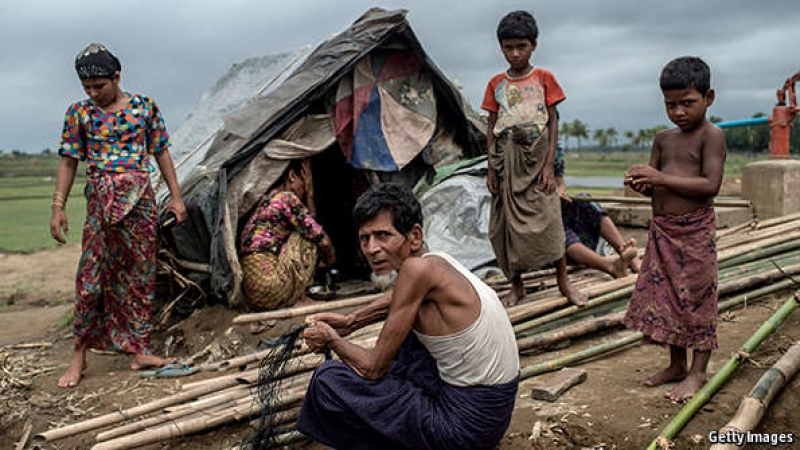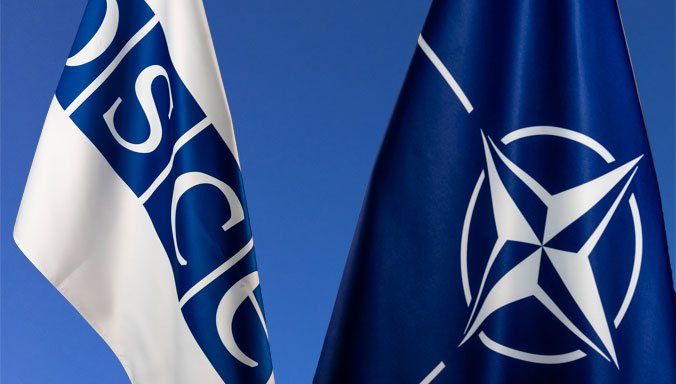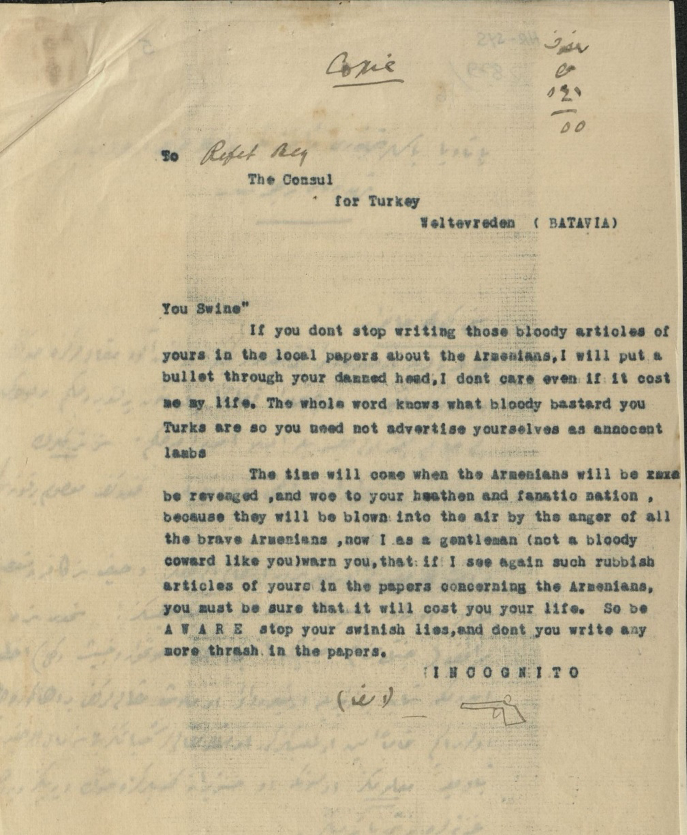Upon reviewing Phillips’s proposals that we addressed yesterday on what could be done for the normalization of Turkey-Armenia relations, we have reached the following conclusions.
First of all, it could be seen that Phillips attaches too much importance on the activities of civil society organizations shortly referred to as “Track Two”. Although the idea of intensifying civil society activities when there is absence or minimization of contacts on an intergovernmental level is accurate in essence, it is difficult to receive positive outcomes from the activities and initiatives of civil society organizations during a period when serious disagreements exist between the two countries, especially concerning the genocide allegations, inviolability of borders and the Karabakh issue.
Within this framework, as Phillips has proposed, although preparing a “Friendship Treaty” as a result of “Track Two” activities is possible in principle, it should not be expected from the governments of both countries to adopt texts prepared by individuals and/or institutions lacking both competence and responsibility.
Therefore, there will be a greater chance for “Track Two” activities to be successful if they deal with more moderate concerns and emphasize issues such as culture and sports in particular.
When observing Phillips’s proposals, it could be seen that almost all of them are to Armenia’s favor. It is obvious that a person who acts as a mediator must remain “neutral” as possible. However, just as he did with the works of the Turkish-Armenian Reconciliation Commission, this time he has brought forward proposals which please the Armenians. But, by doing this, he reduces the possibility of these proposals being taken into consideration by Turkey.
As known, the Turkey-Armenia Protocols have failed to be implemented due to the Karabakh issue and the border between the two countries continues to remain closed. Phillips proposes for the bridge across the the Akhurian River (Arpaçay) to be restored and at least opened for tourism, the border to be opened for Armenian tourist buses, pilgrim groups and cultural tours, new charter flights between Van and Yerevan to be increased in order to expand people-to-people and commercial contacts and Armenian trucks to be allowed to off-load in Turkey. If all these are realized, then to a great extent the border will be opened; in other words, the non-implementation of the Protocols will be “by-passed”.
There are some speculations, mostly based on Armenian/US sources, that the Eastern provinces of Turkey needs energy, that Armenia is capable of selling electricity and therefore, such a great trade-off will contribute to the development of relations between the two countries. Phillips repeats these speculations. However, when examining closely, it could be seen that Armenia does not possess reliable resources for producing electricity. The Metsamor Nuclear Power Plant, which is the main source of energy, has already lived out its lifespan and is closed frequently for restoration. Other sources of petroleum and natural gas in producing electricity are imported by Armenia. Due to some security issues, importation through Georgia is sometimes ceased. In this situation, experiencing problems is inevitable when receiving electricity from Armenia.
Some of Phillips’s proposals under the heading of reviving intergovernmental contacts would not lead to a revival of these contacts, but on the opposite would cause their failure from the very beginning if they are insisted upon. The ICTJ’s famous formula of Turkey not paying compensation and not giving territory to Armenia if it recognizes the genocide allegations completely contradicts Turkey’s policy which it has followed until now and which has no reason to not continue following from now on. When remembering the great reactions of governments and public opinion in Turkey towards the US genocide resolutions, there is no possibility that US recognition of the genocide allegations will lead to reconciliation over time between the two countries. The proposal that Prime Minister Erdoğan should apologize to the Armenians just as he did for the Dersim events is based on a very incorrect and common belief that only the Armenians have suffered during the First World War. The fact that 518.000 civilian Muslims were slaughtered by Armenian gangs during the war has been proven by the Ottoman official documents recently published. Therefore, it is evident that unless the Armenians and their advocates possess a “just memory”, it will not be possible for true reconciliation between Turkey-Armenia and the Turks and Armenians to be reached.
Phillips is not realistic at all on the Karabakh issue. He proposes that if Azerbaijan does not show the political will necessary in resolving this issue; in other words, does not make concessions to Armenia, the Minsk Group co-chairs should suspend negotiations. When considering the criticisms of Azerbaijan together with Turkey against the Minsk Group, we do not believe that they will complain if this Group ceases to function.
Phillips’s most constructive proposal is the one regarding the recognition and opening of the border between Turkey and Armenia. He states that this could be done through exchange of diplomatic notes and that this does not require parliamentary authorization. Technically this is possible. However, it seems that he has forgotten that the border remains closed because no progress has been achieved in the Karabakh issue.
Last of all, Phillips calls on Prime Minister Erdoğan to issue an executive order in the name of humanity to open the Turkey-Armenia border and submit the Protocols for ratification by the Turkish Grand National Assembly. However, it is difficult to understand what the benefit will be of the Turkish Prime Minister abandoning its policy which Turkey has followed for years and giving Armenia such a gift by ignoring its relations with Azerbaijan.
We believe that Phillip’s proposals essentially reflect Armenian views and therefore, there is no possibility for it being accepted and implemented as a whole. Perhaps it might be possible to dwell on some of them which do no have a political aspect (such as extending the Turkish optic cable to Armenia) if Armenia is still interested after it is rid of the election atmosphere it currently is in.
© 2009-2025 Center for Eurasian Studies (AVİM) All Rights Reserved
 ARAKAN AND THE PLIGHT OF THE ROHINGYA: CONFLICT UNDER AN UMBRELLA OF DEFINITIONS
ARAKAN AND THE PLIGHT OF THE ROHINGYA: CONFLICT UNDER AN UMBRELLA OF DEFINITIONS
 NATO IS NOT BRAIN-DEAD: HOW CAN OSCE AND NATO HELP STOP THE WAR IN UKRAINE?
NATO IS NOT BRAIN-DEAD: HOW CAN OSCE AND NATO HELP STOP THE WAR IN UKRAINE?
 FROM DISTANT FRONTIERS TO A LONG CHAIN OF EXTREMISM: MEHMET REFET BEY AND EARLY ARMENIAN TERRORISM (1916)
FROM DISTANT FRONTIERS TO A LONG CHAIN OF EXTREMISM: MEHMET REFET BEY AND EARLY ARMENIAN TERRORISM (1916)
 COMMEMORATION OF THE 100TH ANNIVERSARY OF THE 1915 EVENTS AT ST. PETER’S BASILICA
COMMEMORATION OF THE 100TH ANNIVERSARY OF THE 1915 EVENTS AT ST. PETER’S BASILICA




























